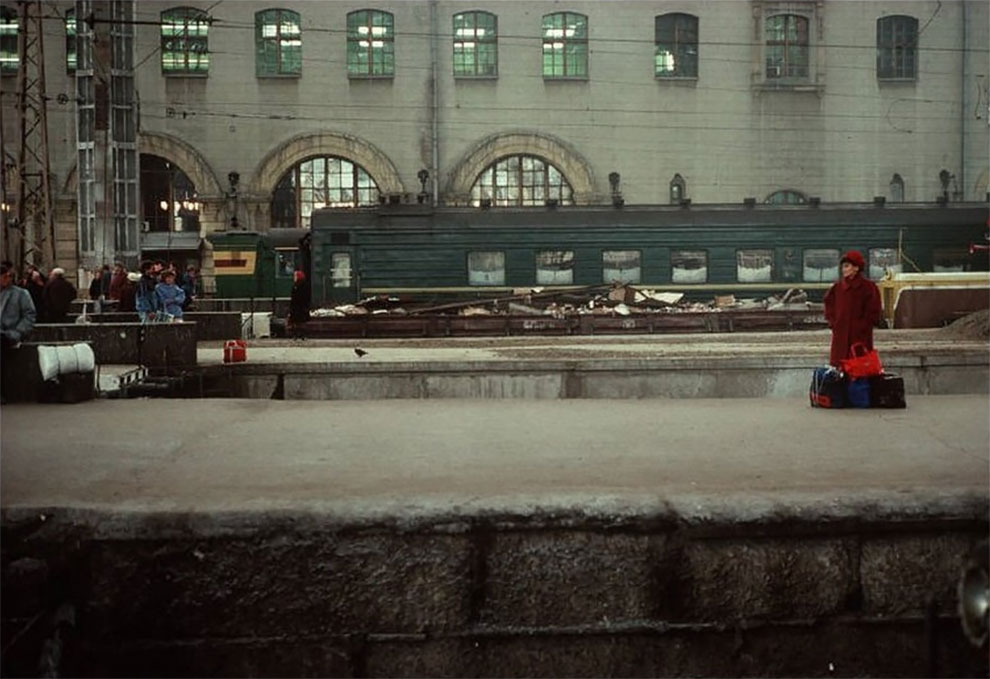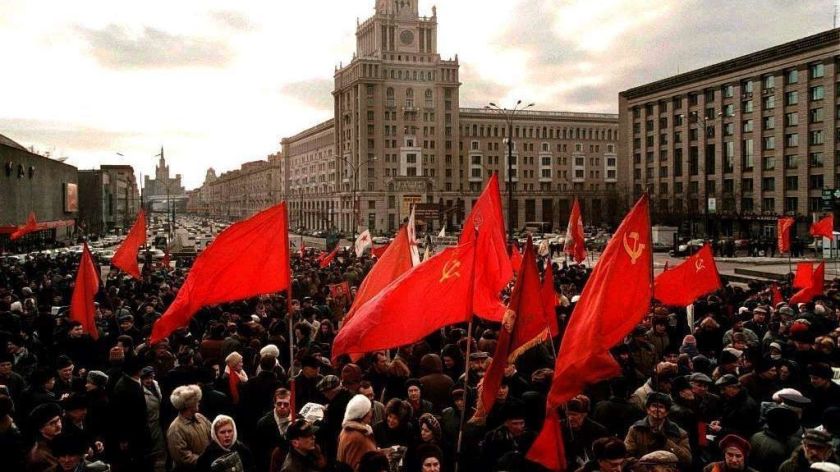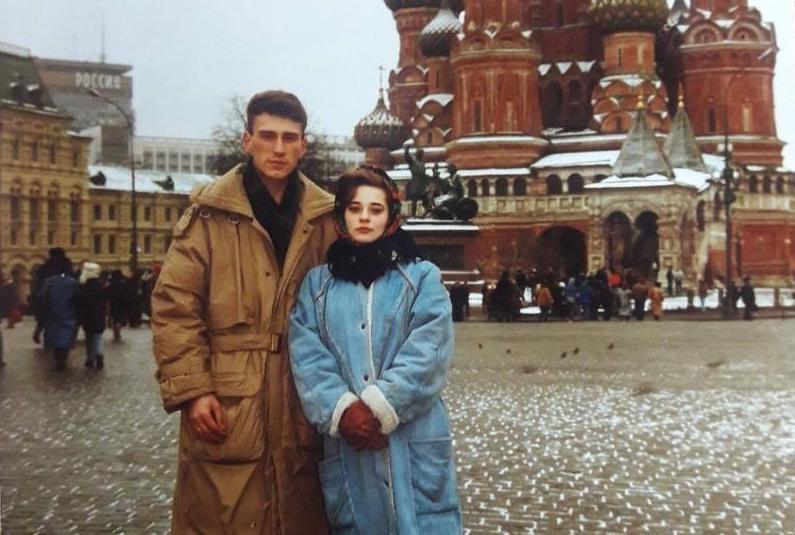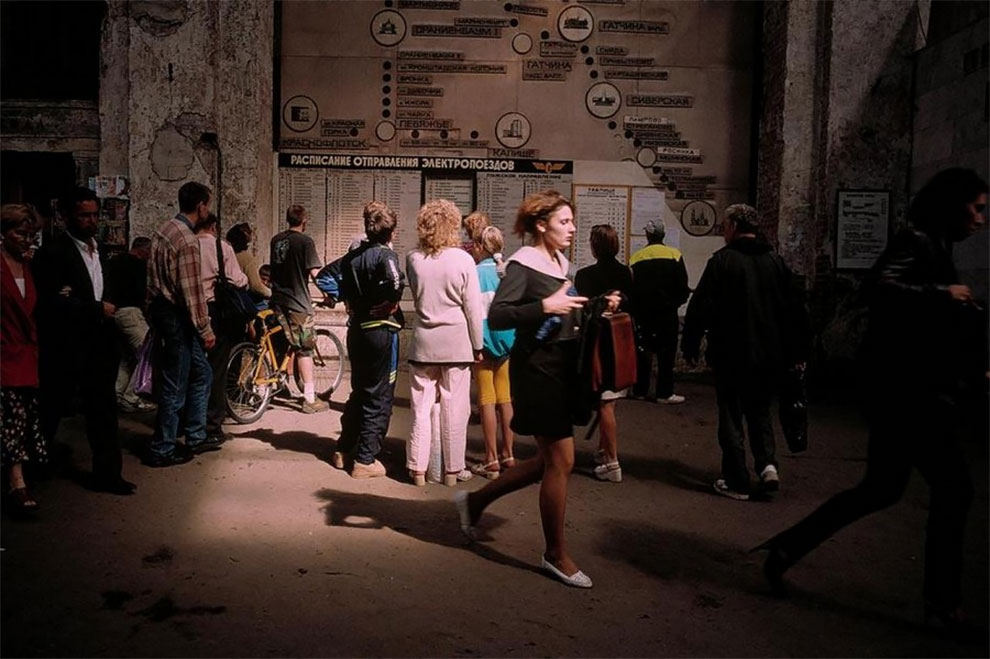
Second-Hand Time
Svetlana Alexievich
Photo credits: Lise Sarfati
7th July 2020
"Second-Hand Time" is written by Svetlana Alexievich, a Belarusian journalist, essayist, oral historian and 2015 Nobel Prize laureate. In this monumental piece, she documents the personal accounts of ordinary men and women that lived through the collapse of the USSR. The individual monologues describe their thwarted efforts to crawl out of the ruins of a fallen civilization, finding themselves having to make sense of their Soviet past in a complete different world. The result is an unsettling confession of heart-breaking experiences that are mostly left untouched and forgotten under the rubble of history.
These stories often detail the overnight transition from socialism to capitalism that lead to years of instability and poverty. Stories of the USSR old guard’s traumatised relationship with ‘capitalist’ Russia and their powerless ruminations of Soviet nostalgia are frequent. Distressing tales of Gulag-survivors, Soviet War Heroes, forgotten Soviet childhoods and the results of Russia’s most recent wars with Chechnya and Afghanistan... it’s all here. Alexievich does not discriminate, but also includes first-hand accounts of Russia’s revolting behaviour towards migrant workers from previous Soviet satellite states. It’s a collection of testimonies, reports, dairies and third-party accounts detailing life and death, love and hatred, struggle and sadness.

Photo credits: LA Times
Much of Russian history is undeniably steeped in suffering: this has been the subject of study for many academic historians and socio-political commentators. Thus, it is impossible to ignore the long-standing effects of the Stalinist regime on the tragic figure of the Soviet New Man, the Soviet Union's greatest experiment. See for instance, the story of Olga Karimova witnessing her husband’s last breath on a hospital bed:
“But the fear… no matter what, the fear… He didn’t know how to live without it… Dying wasn’t new to him… He wasn’t afraid of this little death… and I sat there. Holding his hand, I listened to his final heartbeat. Afterwards, I sat with him like that for a long time… By morning he was beautiful… The fear had evaporated from his face, the tension dissipated, all the frenzy of life had dispersed. And I noticed his subtle and elegant features. The face of an Oriental prince. So that’s what he was like! That’s what he was really like! I never knew that about him. His one request: ‘Write that I was a happy man on my tombstone. That I was loved. The most terrible torment is not being loved’.”
Imagine sharing and devoting your life to someone that lived through so much suffering that you never truly knew how beautiful they were until they died…

Photo credits: Reddit
Of all works, "Second-Hand Time" reminds me of “The Gulag Archipelago” by Aleksandr Solzhenitsyn: a narrative account of the Soviet forced labour camp system organised from reports, interviews, statements, diaries and Solzhenitsyn’s own experience as a Gulag-survivor. Solzhenitsyn had to rely on his memory and literary talents to uncover the painful realities of the Soviet Union. Similarly, Alexievich gathers testimonies, reports and personal commentaries in order to construct an honest portrait of contemporary Russia. However, here, Alexievich is able to record the private testimonies, word for word, of her interviewees with a tape recorder, allowing them to speak without interruption. This ultimately provides an unfiltered description of the devastating effects of the recent past on the Russian people.
"Second-Hand Time" provides undivided attention to countless voices that are marginalised, silenced and left behind. There is very little that is uplifting here, no hope or consolation. It is a profound exploration of Russia's current psychological, socio-political and spiritual condition. But this book is important, not only in revealing the devastating effects of the Russia's recent past, but also the kind of suffering that man has often experienced throughout time. These stories are not as unique to Russia as you think. Suffering in life is inevitable… however, the question we should be asking isn't: 'why do we suffer?', but 'how should we suffer?'. Something that'll take a lifetime to work out …

Photo credits: Lise Sarfati